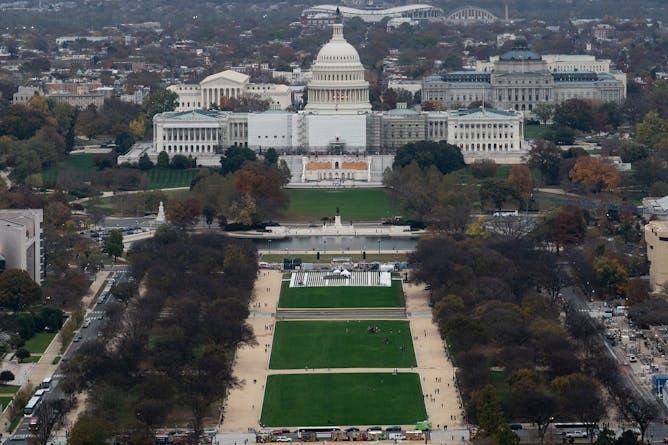|
One of the pleasures of my job is commissioning stories that debunk conventional wisdom. Reality – especially political reality – is often more complex and less clear than the definitive explanations uttered by pundits. Take the outcome of the 2022 midterm elections. Commentators pronounced the results were due to voters’ concern about abortion. Or immigration. Or fear of losing U.S. democracy. Or the repudiation of MAGA Republicanism. Or the outcome was determined by Gen Z voter turnout.
All those interpretations have some degree of merit, writes political philosopher Robert Talisse of Vanderbilt University. But they’re off the mark, he says, because you simply can’t rake all those voters into a pile and say an election reflects “the will of the people.”
“It’s not that democracy falls short of discerning the people’s will, but rather that there is no collective will to express,” writes Talisse. “There’s only a mess of inputs, a counting procedure and a result. Consequently, the idea that the result of a large-scale election could amount to an ‘endorsement’ or ‘repudiation’ of a candidate’s or party’s agenda is largely a myth.”
Also today:
|

Voters in the midterm elections decided that the GOP would run the House, while the Democrats would run the Senate.
Liu Jie/Xinhua via Getty Images
Robert B. Talisse, Vanderbilt University
Lots has been said about the 2022 US midterm elections. But a scholar of democracy says there’s really only one conclusion that can be made about how voters behaved.
|
Science + Technology
|
-
Jeremy Horowitz, Smithsonian Institution
Black corals provide critical habitat for many creatures that live in the dark, often barren, deep sea, and researchers are learning more about these rare corals with every dive.
-
Lana Ruvolo Grasser, National Institutes of Health; Rachelle Stammen, Emory University
Guidelines and regulations weigh the medical and health benefits of animal research with researchers’ ability to ensure humane care of their subjects from start to finish.
-
Phil R. Cummins, Australian National University; Mudrik Rahmawan Daryono, Badan Riset dan Inovasi Nasional (BRIN); Stacey Servito Martin, Australian National University
The Java quake was so devastating in part because it occurred so close to the surface.
|
|
Politics + Society
|
-
Jeannine Bell, Loyola University Chicago
Bias-motivated attacks became a distinct crime in the 1980s. But police investigate only a fraction of the roughly 200,000 hate crimes reported each year – and even fewer ever make it to court.
-
David Mednicoff, UMass Amherst
Migrant workers’ rights are indeed an ongoing issue in Qatar – but the country has passed reforms to improve workers’ rights, and it isn’t the only issue to define Qatar.
|
|
Environment + Energy
|
-
Zhong-Ren Peng, University of Florida
Dozens of homes near Daytona Beach collapsed or were left unstable when Hurricane Nicole struck. Here’s what can be done to reduce that kind of risk.
|
|
Health + Medicine
|
-
Diane Cress, Wayne State University
The symptoms of B12 deficiency resemble a lot of other health problems, putting millions of Americans at risk of a misdiagnosis.
|
|